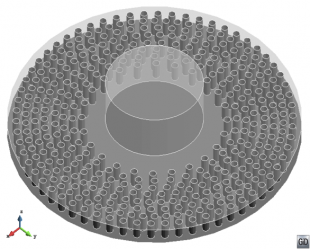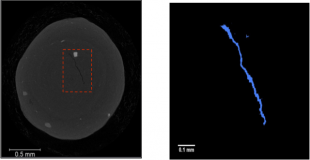Milling is a common unit operation deployed in many industrial sectors for particle size reduction. Although milling has been known to be highly inefficient (whereby only a small percentage of the energy consumed is actually used in the comminution process) and its importance has been recognised for many years, the optimisation in the design and operation of milling remains very challenging largely due to the lack of scientific understanding of the complex mechanisms involved. In this project, we are developing a robust methodology to link material grindability with particle dynamics in a mill in order to provide an innovative step-change in mill fingerprinting and optimisation. This involves a rigorous validation study on an industrial mill using a multiscale approach with a calibrated particle breakage model.
Principal Investigator:
Co-Investigators:
Dr. Jin Sun; Prof Jian-fei Chen (Queens Belfast)
Postgraduate Researchers:
Mr. Lige Wang





